CI/CD Model:
what and why it matters in software development

CI/CD Model: what and why it matters in software development

There was a time when software development was simply about building a software solution. However, as the software infrastructure continues to gain tremendous popularity, many adjacent development processes have become mature. In addition, the modern software development process has grown new intricacies of code, complicating the process further. Often, teams struggle to deliver software to the customers due to a lack of consistency and too much manual labor. Such concerns give rise to infrastructure topics like integration and deployment approaches like DevOps.
The agile DevOps practices remove all the inefficiencies of a traditional software development process. It shortens the tedious software development cycles, maintains a steady, continuous software delivery, and ensures high product quality. DevOps prevents software development companies from releasing a sub-optimal product in the market from conception and execution to delivery and support. It keeps track of all the iterations and allows for effortless modifications as per the market trends.
Its endless benefits and developer-friendly coding environment allow SMBs to launch high-quality software products in the market, serve the customer demands, and stay competitive with prominent enterprises. Moreover, with the increasing adoption of DevOps technology, the CI/CD pipeline has become mainstream amongst software companies.
For software development firms in India, understanding the CI/CD nuances is critical to keeping their organization at par with competitors. This article educates about continuous integration (CI), continuous delivery (CD), and its importance for software development companies.
What is Continuous Integration?
Continuous Integration allows developers to push code with automatic testing so that once it is integrated into the main website code, no issues arise or the site doesn’t crash. CI sets up an automated way to create, compile, and test software applications. Using CI, developers can change codes more frequently, enhancing collaboration and bettering software quality. In addition, since code is tested beforehand, it removes any integration-related bugs that might arise later.
What is Continuous Delivery?
CD or Continuous Delivery picks up where CI or Continuous Integration ends. CD automatically pushes the applications to selected infrastructure environments. Since most teams work with multiple domains like development or testing, CD ensures an automated way to move code changes into the main website structure.
Together, CI/CD automates a considerable margin of the testing and QA steps, eventually forging a system that fulfills the rapidly changing customer demands and modern-day development requirements.
How the CI/CD model benefit the software development companies

The ultimate benefit of implementing the CI/CD pipeline in a software development environment lies in process automation. It helps achieve frequent and faster deployment, improves communication between customers and brands, and boosts site performance. With a CI/CD model in place, software firms don’t have to focus on the nitty-gritty of the development process and effortlessly launch scalable and robust products in the market.
Advantage #1- Easy code changes and a quick review
Using the CI/CD model, developers can integrate codes quickly and easily, ultimately reducing the risk of sudden changes on the website and decreasing post-code modification issues. In addition, developers can compile and test the code beforehand, which helps recognize the problems and solve them. Eventually, it increases the release rate and enhances communication between employees, especially if there are two development teams, one working remotely and the other in-house.
Advantage #2- Solve issues right when they take place
In the event of a code error, if the issues are not considered, there is a higher possibility of any site damage, which makes it less secure. In a CI/CD model, fault isolations monitor the system, find the time of occurrence for a fault, detect the issue, and implement changes to counter it. All these solutions reduce site downtime and bug incidences in the application.
Advantage #3- Fastens development response time
The CI/CD model can test multiple code types as required and integrate them with their correct application without causing any performance lags. It presents enterprises with an opportunity to implement user demands in real-time by pushing all the requirements from updates to feature introductions, personalized discounts, etc., faster and easier than before. Moreover, you can even use the model to test your user interface versions and align your product with changing user requirements, needs and trends. Over time, such optimizations improve your conversion funnels.
Advantage #4- Reliable test environments
In a CI/CD model, developers can enable specific changes using automation, thereby improving test reliability. It minimizes the mean-time-to-resolution (MTTR) values due to small code changes and fault isolations. The testing environment allows us to find errors, remove them and implement changes in the main code body.
Advantage #5- Reduces time-to-market state
The only way an enterprise can enjoy improved sales, conversions, and revenue is when they connect with a lead, push them down the marketing funnel, and successfully convert them to customers. Failure to incorporate user-friendly features and tools can lead to turnaround issues. However, with the implementation of the CI/CD model, the time duration between identifying demand and responding to it is significantly reduced. It improves your market success rate, reduces time-to-market, and speeds up the development process, which means you can launch your applications faster.
Advantage #6- Improved productivity
Since your team can implement changes quickly and rapidly in a CI/CD model, prospects like reworking the code or wait time for code implementation are eliminated. In addition, the automation process allows developers to verify code quality, security, and productivity.
Advantage #7- Lead to customer satisfaction
The idea of implementing a CI/CD model to the code structure of a software solution is to fulfill consumer demands and add new preferred features. Moreover, the CI/CD model allows owners to keep their products up-to-date by elevating speed via modern technology, ultimately easing customer demands. This way, software development companies can boost client satisfaction levels and turn the software products into conversion-oriented portals.
Advantage #8- Better code quality and reduce development costs
Using the CI/CD model, a development team can complete multiple codes quickly, empowering websites with automated, robust, and efficient solutions. Since the new code follows the same process, it reduces the time and money required in the development cycle. Besides, reduced errors and faster deployment also reduces the overall expense budget.
Conclusion
As a software development company, if you wish to sustain in the cut-throat competition, the only way to do so is by delivering a similar experience that your customers are looking for. A CI/CD model allows you to provide your customers with an exceptional or memorable customer experience by perfecting your web development process. More so, integrating this model with your existing infrastructure will enable you to optimize your conversion rates, boost sales, and elevate profitability levels efficiently and sustainably.
Featured Articles
Latest Articles

Outsourcing vs. In-House: Why Companies Prefer Outsource Development Teams
Outsourcing vs In-House: Why Companies Prefer Outsource Development Teams In today’s competitive digital world, .. Read More
By Abhinav Kumar | Feb 27, 2026

Future Trends in Custom ERP Software Development for 2026 and Beyond
Future Trends in Custom ERP Software Development for 2026 and Beyond The way businesses operate is changing faste .. Read More
By Abhinav Kumar | Feb 26, 2026

How an Ionic App Development Company Helps You Build Scalable and Cost-Effective Apps
How an Ionic App Development Company Helps You Build Scalable and Cost-Effective Apps When a business decides to build .. Read More
By Abhinav Kumar | Feb 24, 2026

Hybrid App Development Company vs. Native Development: Which Is the Best Choice in 2026?
Hybrid App Development Company vs. Native Development: Which Is the Best Choice in 2026? Choosing the right developmen .. Read More
By Abhinav Kumar | Feb 17, 2026

Why Businesses Prefer Flutter App Development Companies Over Native Development Teams
Why Businesses Prefer Flutter App Development Companies Over Native Development Teams When businesses plan to build a .. Read More
By Abhinav Kumar | Feb 11, 2026

Cost Savings and Quality: The Value Proposition of Web Application Offshore Development
When it comes to building robust, scalable web applications, businesses are increasingly looking beyond borders to find .. Read More
By Abhinav Kumar | Jan 13, 2026

Emerging Trends in Custom Web App Development for 2026 and Beyond
The world of apps is growing faster than ever. According to Statista, the global mobile app market is expected to reach .. Read More
By Abhinav Kumar | Jan 13, 2026

Comparing Offshore vs. Onshore Software Development Companies: Pros and Cons
Today’s enterprises are casting a wider net when it comes to building their software solutions. In the last fiv .. Read More
By Abhinav Kumar | Sep 11, 2025

How App Development Companies Ensure Your App Stands Out in a Crowded Market
As of June 4, 2025, the mobile app ecosystem has never been more crowded. Google Play hosts a staggering 2,031,61 .. Read More
By Abhinav Kumar | Sep 11, 2025

Why partnering with an offshore web development company can boost your business growth
Picture this: you’re leading a growing enterprise with big digital goals, maybe a global eCommerce rollout or a .. Read More
By Abhinav Kumar | Sep 10, 2025

How to Build Effective and Scalable Web Applications – The Best Practices
A big part of any web application development is its capacity to scale in the later growth stages. Irrespective of the p .. Read More
By Abhinav Kumar | Aug 22, 2025
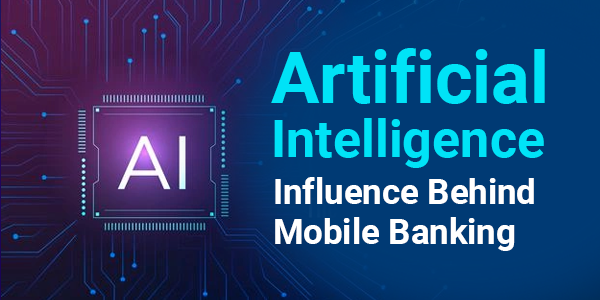
How Artificial Intelligence in Mobile Banking is a Game-Changer?
Let’s start this discussion with a simple question, how many of you still stand in queues outside banks just to get ge .. Read More
By Abhinav Kumar | Aug 14, 2025

Utility mobile application development role in the digital transformation
What is utility mobile application development and why it matters?At this point, mobile applications have become an inal .. Read More
By Abhinav Kumar | Jul 30, 2025

How to build a successful and agile offshore development team?
As a global trend, outsourced software development holds a market size of $92.5 billion, and a significant chunk of .. Read More
By Abhinav Kumar | Jul 15, 2025
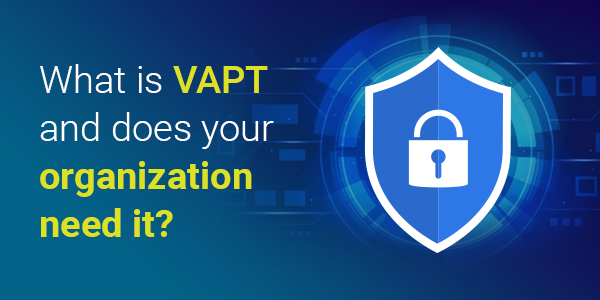
What is VAPT and does your organization need it?
What is VAPT and does your organization need it? To no one's wonder, there is a flood of applications and softwar .. Read More
By Abhinav Kumar | Jul 08, 2025
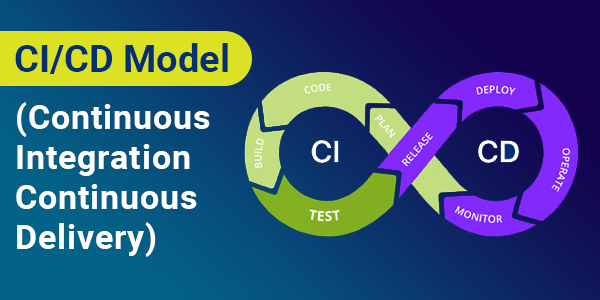
CI/CD Model: what and why it matters in software development
CI/CD Model: what and why it matters in software development There was a time when software development was si .. Read More
By Abhinav Kumar | Jun 01, 2025

What Is Legacy Migration and Why to Consider It
What Is Legacy Migration and Why to Consider It? Software technologies and applications are on the road to an ine .. Read More
By Monu Kumar | May 25, 2025

What Makes CMMI Appraisal Necessary for Software Development Companies ?
What Makes CMMI Appraisal Necessary for Software Development Companies? During software development, your product .. Read More
By Abhinav Kumar | May 10, 2025
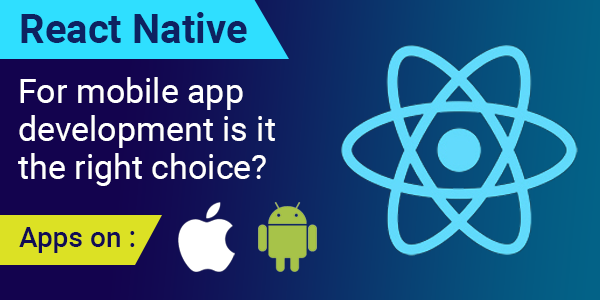
2- Why to choose react native for mobile app development project?
React Native for mobile app development: Is it the right choice? For the 21st century, mobile phones are like sou .. Read More
By Abhinav Kumar | Apr 30, 2025

How Digital Transformation Impacts Software Development Services
Digital Transformation and its impact on Software Development Lifecycle Today's industrial landscape ta .. Read More
By Monu Kumar | Apr 15, 2025

What is the right price for developing a mobile app?
What is the price to develop an iPhone app? Or rather, how much does mobile app development cost? Well, Kudos to you bec .. Read More
By Monu Kumar | Apr 07, 2025

Should I use Flutter for my next Mobile App Development project?
So, what was the mobile app development story before Flutter? Let's consider mobile application develo .. Read More
By Monu Kumar | Mar 31, 2025
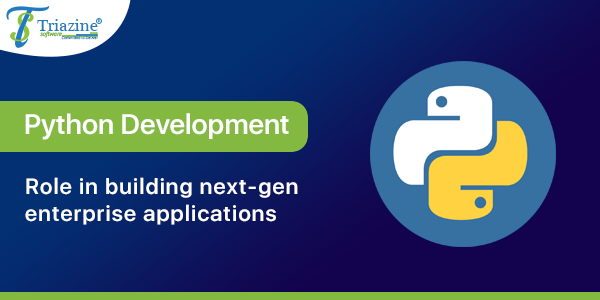
Understanding Python Development Services and their role in building next-gen enterprise a..
From being awarded the best programming language for development to replacing the stardom held previously by Java., Pyth .. Read More
By Abhinav Kumar | Mar 15, 2025

Is there any right pricing strategy for mobile app development?
No phrase can appropriately describe the accelerating mobile app development market! Definitely, it is on a consistent b .. Read More
By Abhinav Kumar | Mar 01, 2025

Mobile App Development: Freelancer or a Software Development Company
So, you’ve decided to build software, and now you’re faced with the debatable and inevitable question: software dev .. Read More
By Monu Kumar | Feb 21, 2025
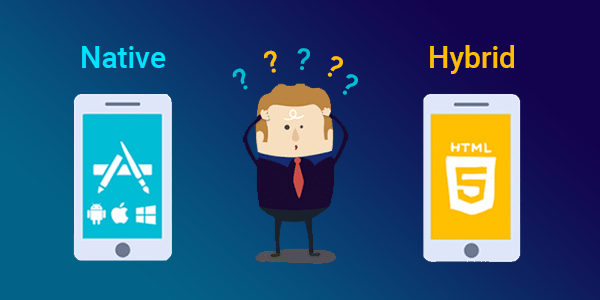
Hybrid Mobile App Vs. Native Mobile App… Am I Making A Right Choice?
This seems to be a million-dollar question when it comes for making a choice between hybrid mobile app or native mobile .. Read More
By Abhinav Kumar | Feb 11, 2025
Recent Articles
Outsourcing vs. In-House: Why Companies Prefer Outsource Development Teams
Future Trends in Custom ERP Software Development for 2026 and Beyond
How an Ionic App Development Company Helps You Build Scalable and Cost-Effective Apps
Hybrid App Development Company vs. Native Development: Which Is the Best Choice in 2026?
